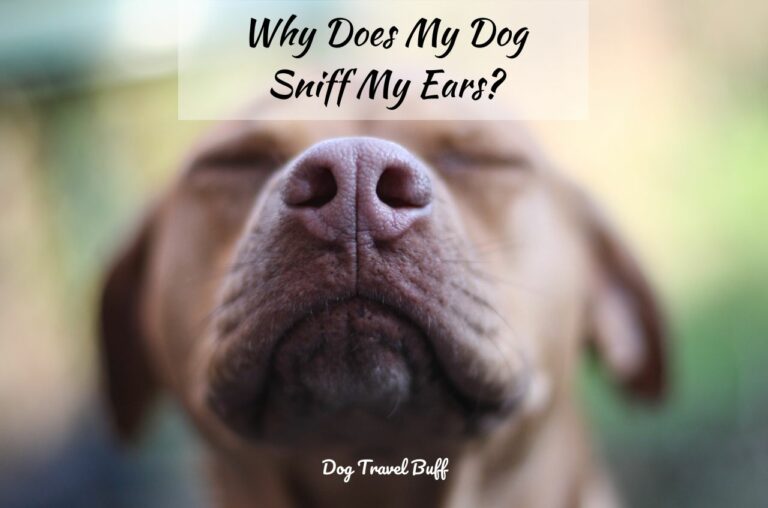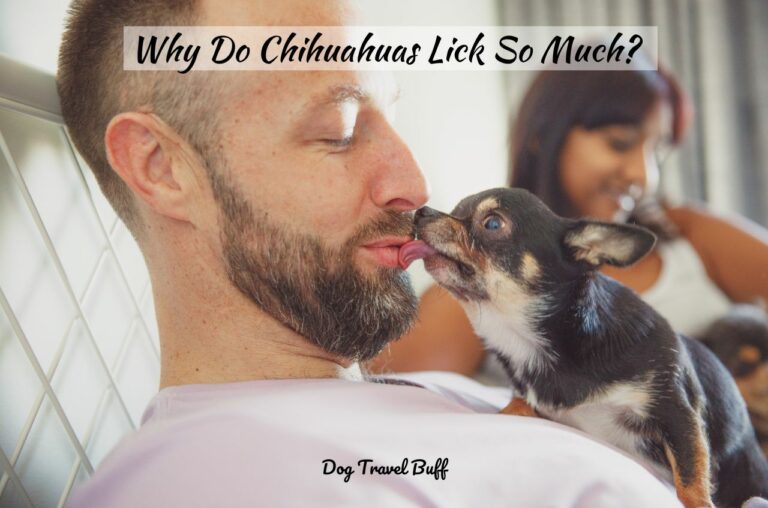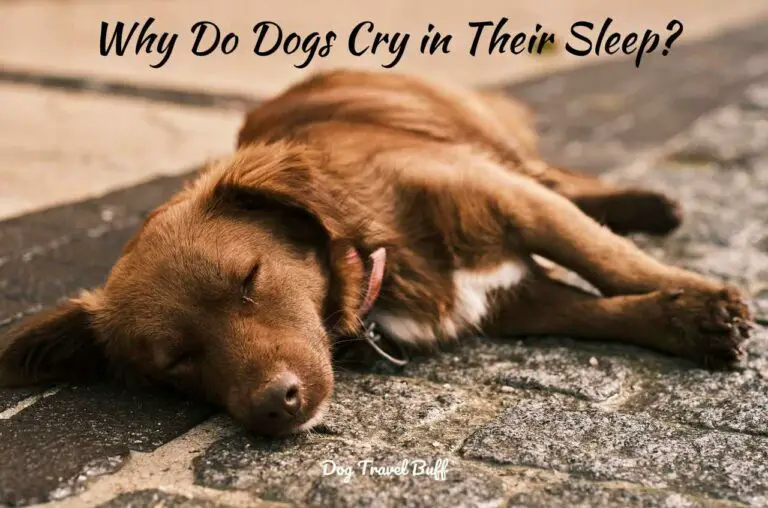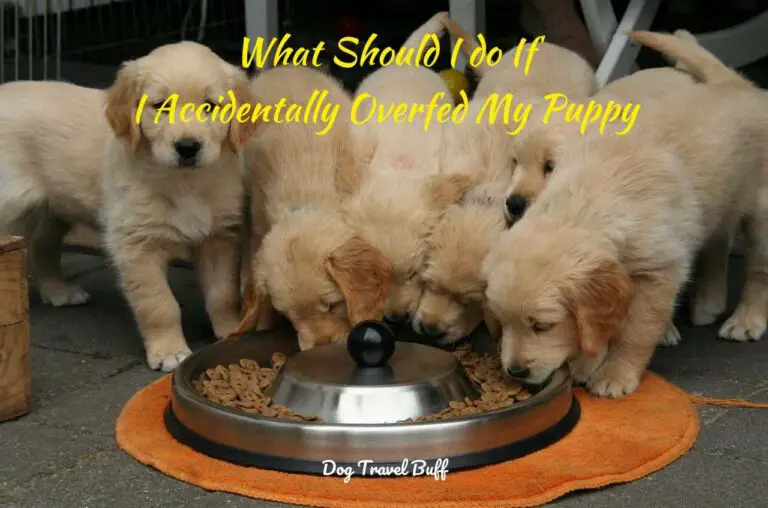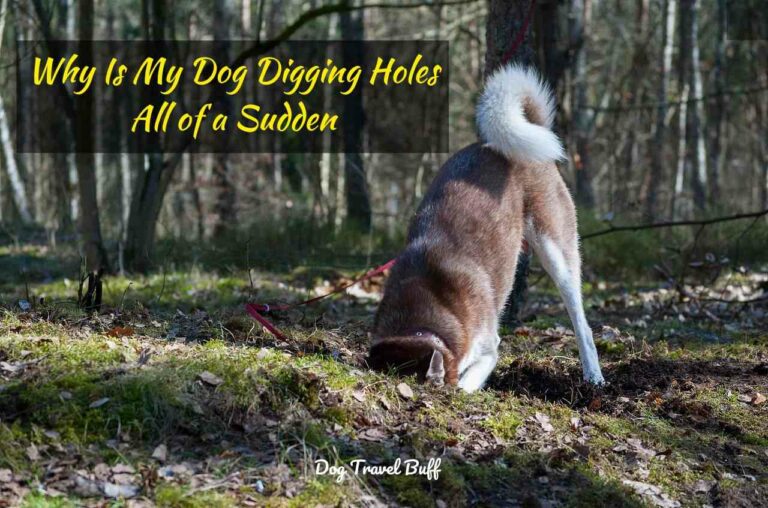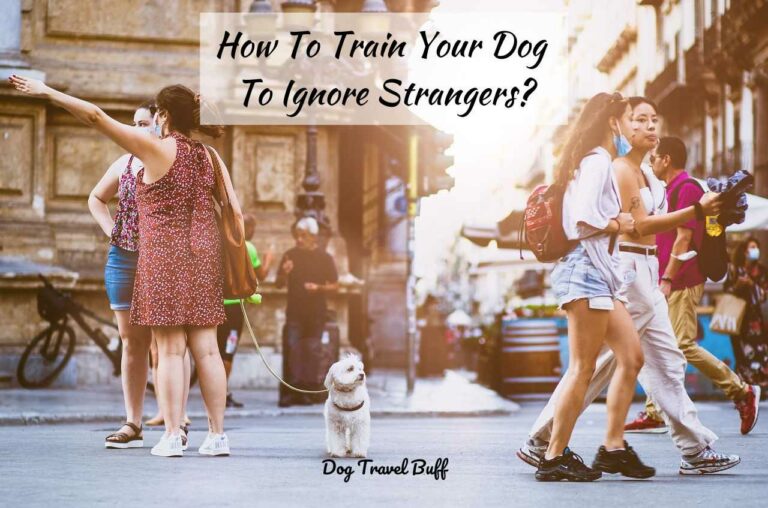12 Reasons Why Dog is Excessively Drooling and Licking Paws
Canine creatures drool, and it comes naturally to them. They also lick their paws occasionally. However, it becomes a cause for concern when they do it too often.
I witnessed my dog drooling often but didn’t pay much attention to it initially. Soon my dog fell sick. This was when I realized that excessive dog drooling and licking paws could be a sign of underlying trouble that you need to address as soon as possible.
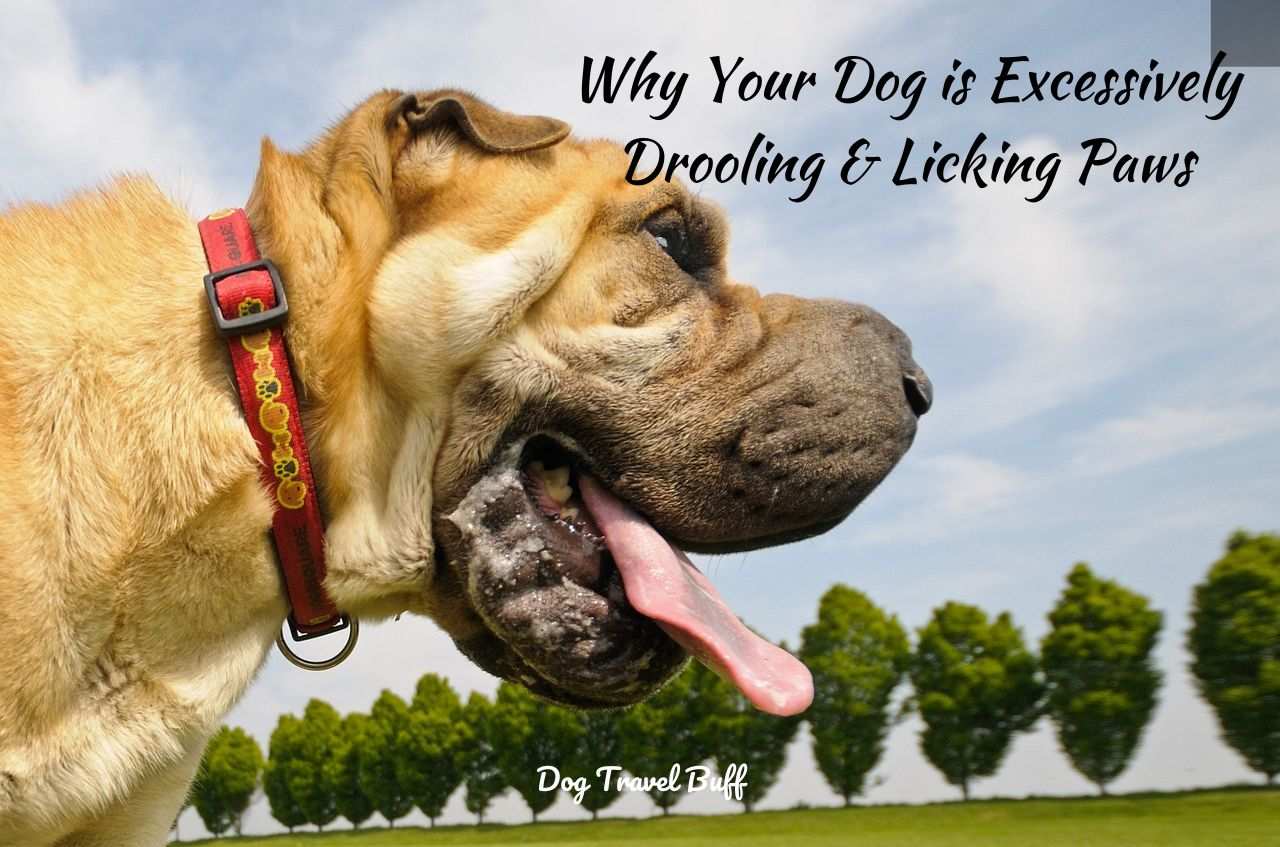
This post may contain affiliate links. If you buy something through one of those links, you won’t pay any extra penny, but I’ll get a small commission that encourages me to deliver more helpful content for you.
There are numerous reasons why a dog might drool excessively or lick their paws. Seasonal allergens or an anxious reaction could be two of them. If you have noticed excessive drooling and paw licking in your dog, then read the article to learn about all the possible reasons for this behavior.
Table of Contents
Understanding Excessive Drooling in Dogs
Drooling often occurs when there is too much saliva formation in the mouth. My dog always comes running with a drooling mouth when it smells or senses its favorite food or treats nearby. It is a trigger that helps them gulp down food more quickly and digest it easily, which became quite evident when my mischievous pup managed to break into the pantry and devour a whole bag of treats in seconds.
In addition to this, saliva also works as a healer for your canine friends. I have noticed my dog licking a part of its body when it has a wound or injury at the place. It’s a common activity. Saliva is a natural healer that helps them clean their wounds and also prevents them from developing an infection. But excessive licking can be harmful sometimes. Hence, you should know how to keep your dog from licking its wound.
You may think that the drooling is because of overfeeding. Well, you are partially true. Once I overfed my puppy and petted it right after, it triggered slobbering in my little one. Thus, I recommend avoiding petting your dogs after feeding them.
Moreover, excessive drooling is more common in certain breeds, which is completely normal for them. These breeds typically have a smaller mouth cavity which makes it hard to keep all the saliva inside. And hence, they just come out slobbering down their jaws.
However, if you find that your dog is salivating excessively, it could have an altogether different reason than the ones mentioned so far.
Causes of Excessive Drooling in Dogs
Excessive drooling in dogs can have concerning reasons behind them, which would require professional help. Based on my personal experience, here are some crucial causes that you should take notice of.
1. Dental Issues and Mouth Problems
Your dog may drool more frequently if they have gum disease, infection in the mouth, or painful teeth. It can also happen when foreign items get lodged in their mouths. Your dog will probably have poor breath and avoid eating in such a situation, which you can take as an additional warning.
2. Stomach Problems
Bowel illness, gastritis, pancreatitis, and even having anything lodged in the digestive tract can all be considered stomach problems. Your dog may salivate more because of nausea as a result of these conditions. Other gastrointestinal symptoms such as bloating, vomiting, diarrhea, or constipation might also exist along with them.
3. Anxiety
A stressed-out canine frequently pants and slobber at the same time. You might notice them drooling more than normal because they are nervous in tense situations like moving into a new home, driving in a vehicle, or watching fireworks.
For instance, my dog used to get scared whenever many people visited my house. Hence, it hid in the corner and started drooling every time such situations arose. All these situations can trigger dog anxiety, making them drool more.
4. Wounds in the Mouth or Throat
Your canine may start drooling a lot if they have something lodged in its mouth or throat. This is quite a common case that I have seen street dogs, and it can happen to pets as well.
It could be anything like a bone, splinter, or any other object that found its way to its mouth. Burns from licking chemicals, biting electrical cables, or even battery acid are additional frequent causes of oral injuries.
5. Insect Attacks and Injuries from Spines
If your dog loves to play in the garden, same as my little furball, they are likely to come in contact with stinging insects and spines plants. Thus, If your dog is suddenly drooling and acting strange, then swelling, injuries, and discomfort from insect attacks are among the reasons to be considered. Apart from this, your dogs’ lips can get irritated by things or plants that are spikey and poisonous. This, as a result, also cause drooling.
Related Post: My Dog Walked On Grass With Pesticide: Should I Worry?
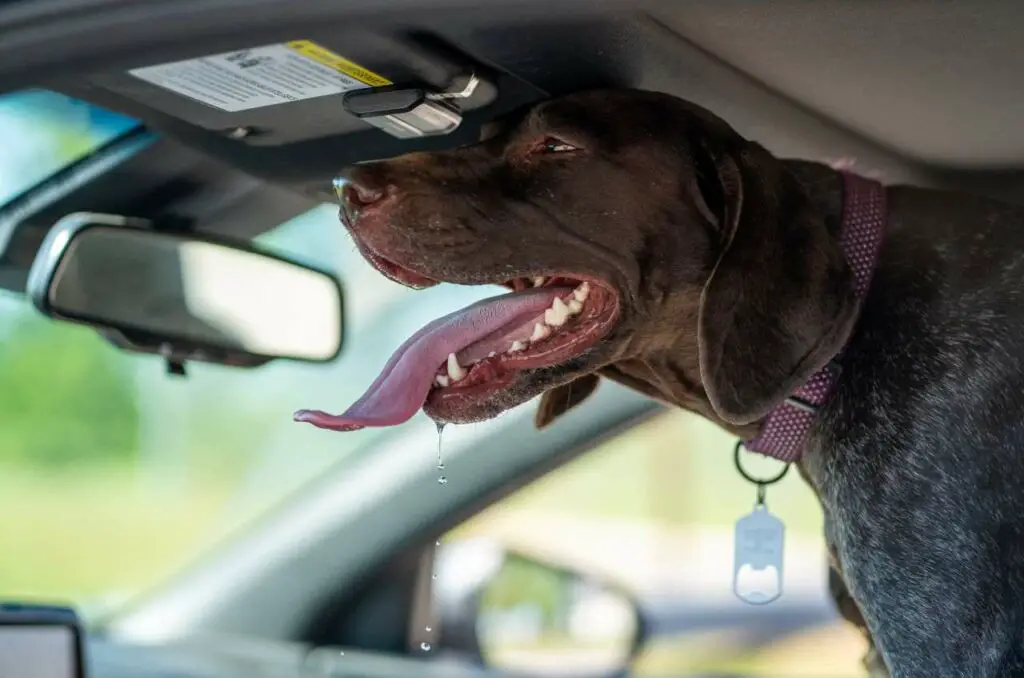
Managing Excessive Drooling in Dogs
To manage abnormal drooling in dogs, you must know what’s causing them to slobber in the first place. It will help you determine how to assist them properly. If they are drooling as a result of anxiety, you can try to lessen their nervousness in particular circumstances.
You can try to make your canine as comfy as you can. You can consider restricting your dog’s vehicle travels if the drooling is the result of motion sickness. Otherwise, let them indulge more in those activities that they love. It will keep them engaged and prevent anxiety issues.
Cleaning teeth, having teeth pulled, treating gastrointestinal issues, getting rid of growths, avoiding triggers, getting rid of foreign objects, and healing wounds are all examples of addressing the root cause.
If you notice your dog drooling a lot, always contact a veterinarian for guidance if you are unsure of the reason for the excessive drooling.
There are a few things I found that you can do to avoid issues that cause extensive salivating.
You can adopt measures such as brushing their teeth, feeding them dental kibble and treats, and chewing on rubber toys to keep your dog’s teeth healthy and prevent saliva problems that arise from dental disease. You can give your dog the appropriate at-home dental care and have your veterinarian conduct routine cleanings.
You might be able to prevent medical conditions that cause drooling. You can be cautious when gathering up objects that could lead to a foreign body obstruction. You may also keep all poisonous vegetation and pesticides out of your dog’s reach.
Understanding Paw Licking Behavior in Dogs
Dogs occasionally lick their paws as a routine of grooming. You must have seen this when they enter the house after strolling on sand or dirty ground. Dogs may lick or gnaw on their feet for a variety of reasons, just like other canine behaviors.
My dog used to lick his paws all the time and looked really cute while doing so. However, if your dog chews his paws repeatedly and vigorously, you should be concerned. It could be because of wounds, allergies to certain foods or the surroundings, skin conditions, parasites, as well as anxiety.
Causes of Paw Licking in Dogs
It’s healthy for dogs to lick their paws occasionally, and it can even keep them clean. But if your canine buddy seems to lick endlessly, you should figure out what’s going on and fix it. The thought crossed my mind when I saw my dog doing the same, and I researched to find the following causes.
1. Grooming Ritual
Dogs routinely may lick their paws with their tongues to remove the dirt off of their legs, feet, and tail. This is a typical, healthy behavior that indicates my pet likes to be tidy. It makes the cleaning and bathing processes easier if you ask me!
2. Irritated Skin
One of the most frequent causes of abnormal paw licking in dogs is dry or itchy skin. Environmental allergens frequently result in skin rashes and dry canine feet. In addition, dogs can develop allergic responses to certain weeds, grasses, and dust.
This can make your companion lick their feet a lot to soothe the irritation. My dog used to lick its paws and rub its skin too often due to irritated skin issues. However, sneezing, inflamed eyes, and a runny nose are some additional symptoms that may indicate allergens in your canine.
3. Allergies
Many canines experience an uncomfortable feeling on their feet when they have allergies to certain things. Foods and snacks for dogs that contain dairy, soy, wheat, beef, or poultry can cause allergic responses and entice your dog to lick its feet overly in an attempt to relieve the itch.
4. Sores
To relieve discomfort, dogs frequently lick their sores. A sting, ingrown nail, insect sting, puncture, bleeding cut skin, or boil may be the cause of your dog’s repeated licking of one leg. It is so because licking can relieve the ache by stimulating a part of the brain that numbs them for a short time. However, sometimes overgrooming can also lead to sores than can alleviate licking behavior in dogs.
5. Arthritis Related Pain
Another typical pain-related cause of paw-licking is arthritis. Dogs frequently lick one of their feet to relieve pain, despite the fact that this joint disease typically results in discomfort throughout their body. If your dog is displaying this symptom, it’s crucial to address the discomfort because compulsive licking, gnawing, and biting can cause inflamed skin and hair loss.
6. Parasitic Infection
Paw diseases from parasites like fleas, ticks, or mange can make them extremely irritating for your furry pal. Since these tiny creatures often go unnoticed in the beginning, it can lead to a large infestation when it becomes quite apparent. The parasites can be removed with therapies that your veterinary can advise. It should stop the itchiness and the accompanying paw-licking.
7. Stress and Anxiety
Paw licking is one of the compulsive behaviors that some canines develop as a result of stress and anxiety. Moreover, boredom and separation anxiety may cause an animal to lick excessively or engage in other harmful behaviors like burrowing, barking, or damaging gnawing.
My mom said that my dog used to lick its paws throughout the time I would be at the office. My absence made it lonely and anxious, leading to the continuous licking of its paws.
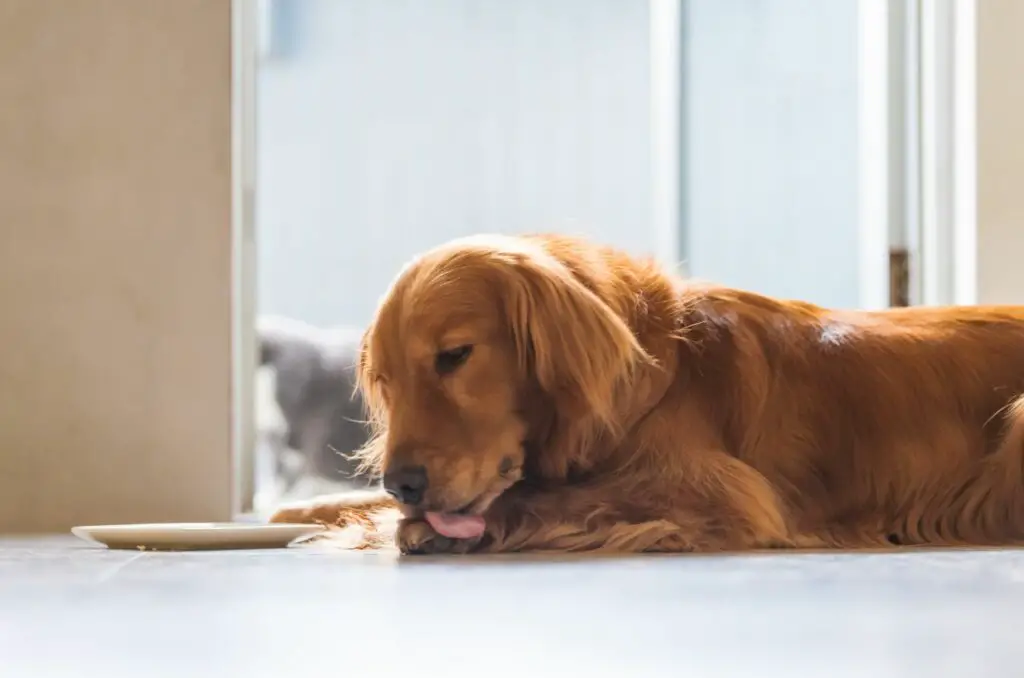
Read Next: Why is My Dog’s Tongue Cold?
Managing Paw Licking Behavior in Dogs
Cleaning up after your canine may help reduce symptoms brought on by outdoor allergies. It is better to check with your pet’s doctor to determine if they have an environmental sensitivity that is causing them to lick their paws excessively.
The veterinarian may prescribe topical anti-itch sprays, antibiotics to treat a bacterial infection, steroids to reduce inflammation, or antifungals to treat yeast infections to help your canine stop scratching, based on the underlying cause of the issue.
In addition, you can try to give your canine access to certain items like their favorite comforter or an enjoyable dog chew toy that will make them feel comfortable even when they are alone. It worked for my dog when I’d be at work.
Its favorite plush mouse toy pulled its attention to playing than licking its paw, helping regulate the behavior. Thus, these types of items can keep your canine occupied and deter them from excessive paw-licking.
The sooner you can pinpoint the issue and fix it, the better, as delaying can lead to secondary infections. If your dog keeps licking their paws, it may develop additional fungal or bacterial infections, which may add to the abnormal licking.
When to Seek Veterinary Care for Excessive Drooling and Paw Licking in Dogs
Drooling and paw licking in dogs are natural behaviors that keep them healthy and clean. If you own a particular breed known for excessive drooling, they are often not a cause for worry. These breeds often have extra folds of skin that make drooling obvious or a small mouth that cannot accommodate extra saliva.
In addition, paw licking is a common act and natural behavior in dogs. They may do it occasionally due to a variety of reasons.
However, if your dog is not among the breeds that drool excessively or lick its paws without any apparent reason, you should seek help from a professional veterinarian. They could be doing it as a response to an underlying condition such as an infection, injury, or trauma.
You should keep a lookout for abnormal changes in the body of your dog, such as a cut, fleas, behavioral changes, and other abnormalities. Moreover, it is essential to get your furry friends to get checked once a year by your veterinarian to treat symptoms before it gets out of hand.
If you keep asking why is my dog panting at night without any reason or you see that they don’t have enough energy along with the salivating and licking behavior, I suggest you get them checked immediately.
Conclusion
Excessive drooling is normal for some breeds and certain situations, such as when your dog senses food or has a healing wound. However, excessive drooling and paw-licking can also happen due to a variety of underlying issues. So, it is essential that you seek the help of a professional if you find your dog excessively drooling and licking paws to address the problems on time.
Read Next:
- Dog Teeth Chattering: What You Need to Know
- 11 Reasons Your Dog is Scratching the Carpet
- 9 Reasons Why Does My Dog Hump After Eating
FAQs:
1. Can paw licking in dogs be a sign of an underlying health issue?
A: A history of excessive licking might be a major health concern, even though paw licking is a natural behavior in dogs and perhaps a necessary aspect of grooming. Moreover, because of the additional wetness on the paws from frequent licking, a secondary infection such as bacterial or yeast may also be a reason.
2. Is excessive drooling in dogs always a sign of a medical issue?
A: Excessive drooling in dogs is not always a sign of a medical issue. It could also be because of the type of breed or sensing food. It becomes a potential cause of a medical problem if they have dental issues, injuries, infections, mouth or lip discomfort, and objects lodged in the throat, mouth, or teeth. Abnormal drooling in dogs may also indicate that your dog has heatstroke or swallowed a poison or toxin.
3. Can certain foods or allergies cause excessive drooling and paw licking in dogs?
A: Yes, certain foods or allergies can cause excessive drooling and paw licking in dogs. Pollen, mites, and spores are a few more things that might cause allergic responses in dogs leading to excessive paw licking.
